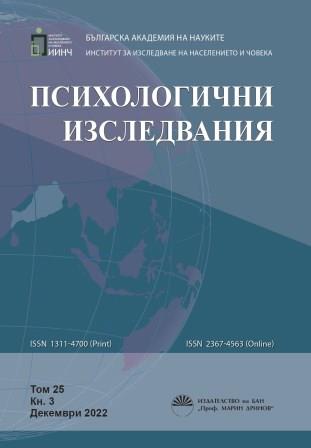The Role of the Body and Extended Memory Systems in Working With Traumatic Memories
The Role of the Body and Extended Memory Systems in Working With Traumatic Memories
Author(s): Radostina MininaSubject(s): Social Sciences, Psychology, Personality Psychology, Clinical psychology
Published by: Институт за изследване на населението и човека - Българска академия на науките
Keywords: extended mind; memory; identity; psychodrama; simulation.
Summary/Abstract: In this article I present psychodrama therapy as a practical example of the combination of mental time trave theory form philosophy of memory and cognitive science and the extended mind from philosophy of mind. Theories of extended mind and distributed consciousness entail the idea of an extended iden¬tity. Following this positions the boundaries of the self are fluid, located somewhere around the body, the brain, the surrounding tools and artefacts the individual is using and the sociocultural structures in which he is situated. In this article I use neo-Lockean theories about personal identity which qualify memory and psychological connectedness as criteria for identity. The concept of extended personal identity is presented on two levels, on one hand as extended bodily identity, and on the other hand as extended memory and personal narrative. Extending memories (including repressed memories) through psychodrama method can affect the subjective perception of one’s own personality and self in a specific way. It can be really useful in cases of post-traumatic stress disorder, and the results could be difficult to achieve by remembering alone through non-externally mediated recall. My view is that the psychodramatic stage is extended simulation in the process of remembering. I present examples of repressed childhood memories that are reconstructed on a psychodramatic stage due to the method’s ability to work with kinesthetic memory. Consequently, I argue that the psychodramatic stage is extended and distributed memory simulation with the purpose to reconstruct repressed memories and reprocess them.
Journal: Психологични изследвания
- Issue Year: 25/2022
- Issue No: 3
- Page Range: 228-239
- Page Count: 12
- Language: English

